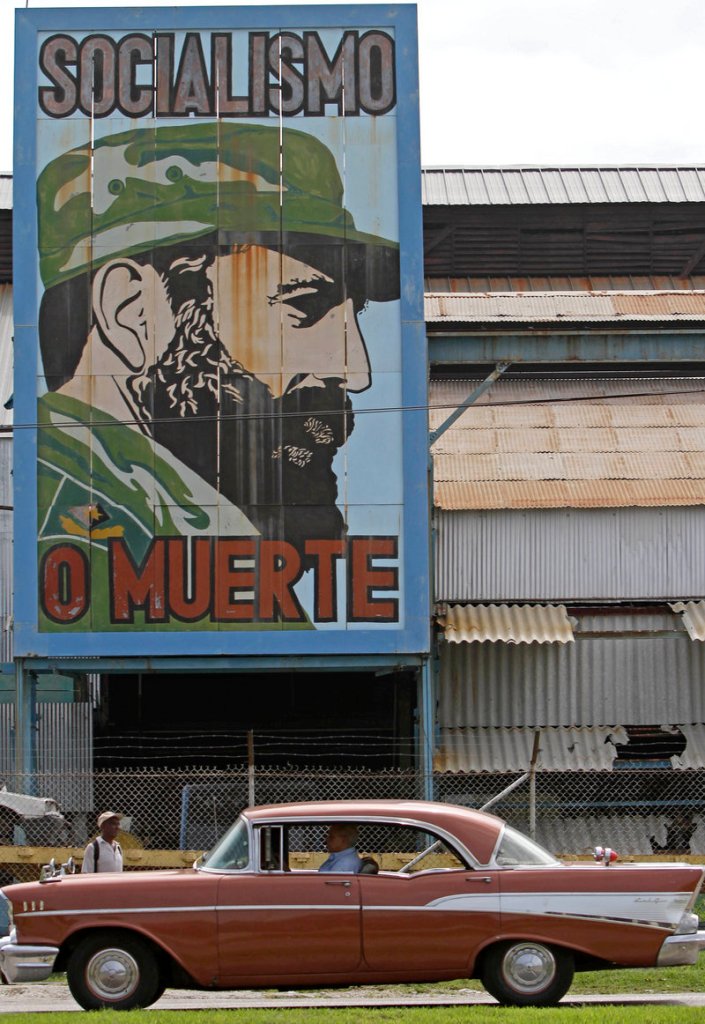HAVANA – Cuba legalized the sale and purchase of automobiles for all citizens on Wednesday, another major step in the communist run island’s economic transformation and one that the public has been clamoring for over decades.
The government announced the move in April, but sales have been on hold until the measure was published into law in the Official Gazette.
Under the law, which takes effect Saturday, buyers and sellers must each pay a 4 percent tax, and buyers must make a sworn declaration that the money used for the purchase was obtained legally.
Unrestricted sales had previously been limited to cars built before the 1959 revolution, one of the reasons Cuba’s streets are about the only place on the planet one routinely finds a multitude of finned American classics from the 1950s such as Chevrolet Bel Airs and Chrysler Imperials, all in various states of disrepair.
Doctors, athletes, artists and others sent abroad on official business were allowed to bring cars back or purchase a boxy, Russian-made Lada or Moskvich from the state. Some senior workers were given company cars, though gas usage is strictly monitored to make sure they are only driven for work reasons.
The new law will allow the sale of cars from all models and years, and it legalizes ownership of more than one car, although tax rates go up slightly.
“It is a very positive step,” said Rolando Perez, a Havana resident who was standing in line to get a license to go into business for himself. “They should have done it a long time ago.”
The purchase of new cars will be easier than in the past, but still extremely limited. Buyers will have to go to a small number of state-owned dealerships and demonstrate they made the money to buy the car through salary earned in an approved field, as opposed to from remittances sent from relatives abroad.
That would seem to limit such purchases to the same doctors, athletes and others who had been eligible to import cars following official travel abroad.
The 40-page Gazette also says that Cubans who leave the island for good can transfer ownership of their car to a relative or sell it outright. Previously, the state could seize the automobiles of those who emigrated.
While most car sales have been illegal without government permission since the early 1960s, used automobiles have been widely traded in a booming black market for years. Buyers would hand over large amounts of cash under what amounted to handshake agreements, with title not changing hands.
Many cars are generations removed from the original title holder, meaning ownership will have to be untangled once the new regulations take effect.
Because they could be legally traded among Cubans, old cars can fetch prices many times what their value would be off the island. Several people told The Associated Press they did not expect prices to be greatly affected until the government starts to import new cars.
The government has also announced it plans to legalize the sale and purchase of real estate by the end of 2011.
Send questions/comments to the editors.



Success. Please wait for the page to reload. If the page does not reload within 5 seconds, please refresh the page.
Enter your email and password to access comments.
Hi, to comment on stories you must . This profile is in addition to your subscription and website login.
Already have a commenting profile? .
Invalid username/password.
Please check your email to confirm and complete your registration.
Only subscribers are eligible to post comments. Please subscribe or login first for digital access. Here’s why.
Use the form below to reset your password. When you've submitted your account email, we will send an email with a reset code.